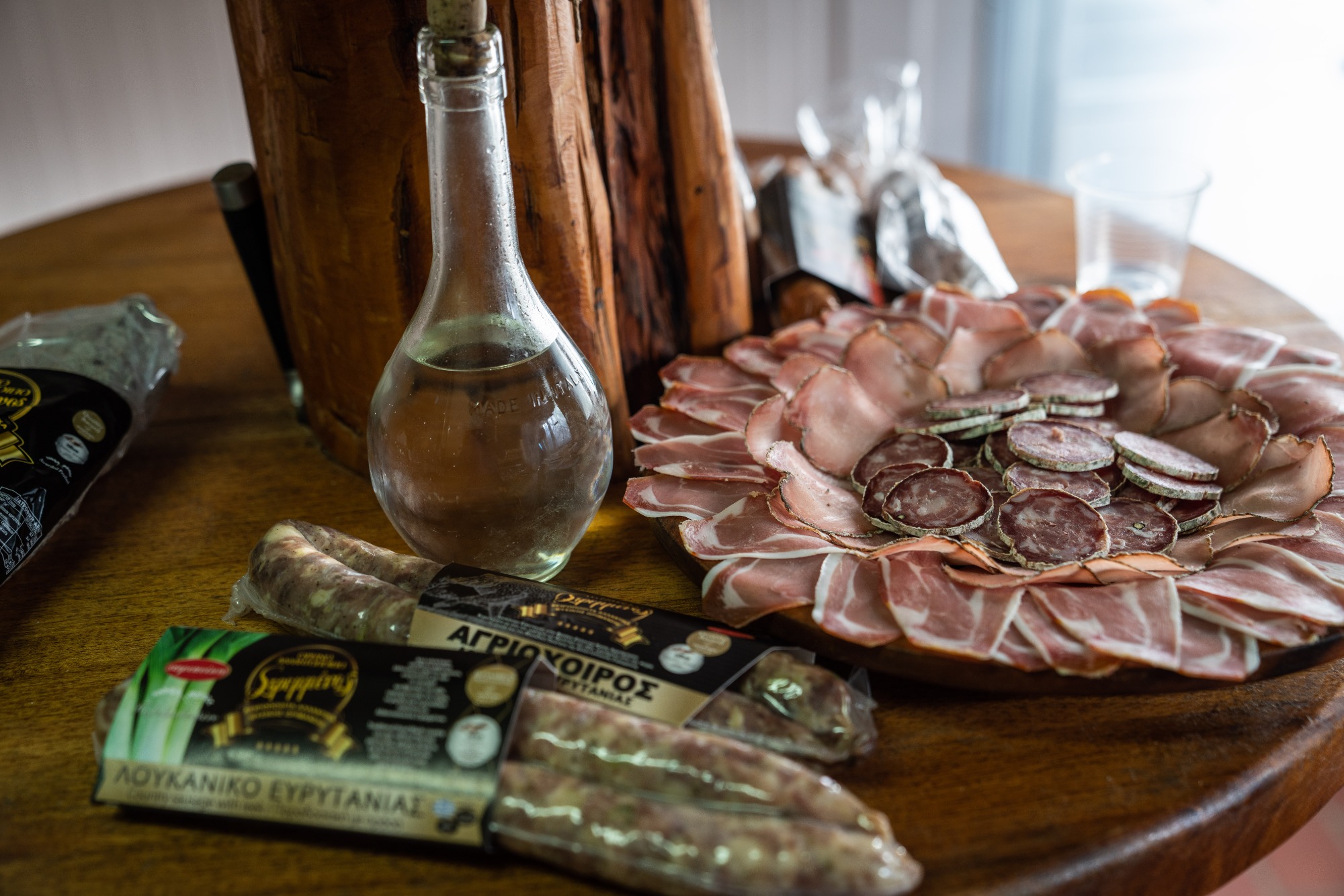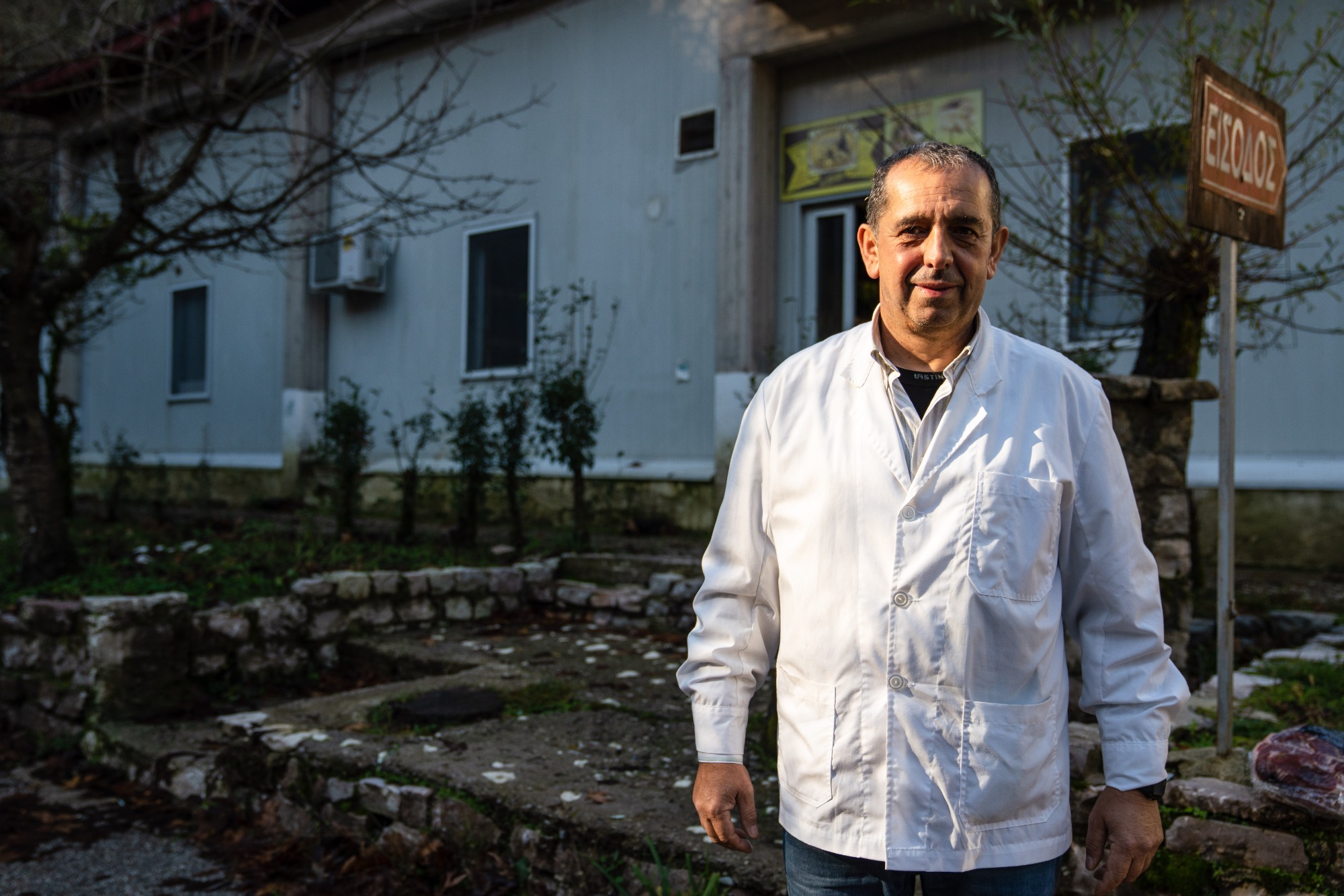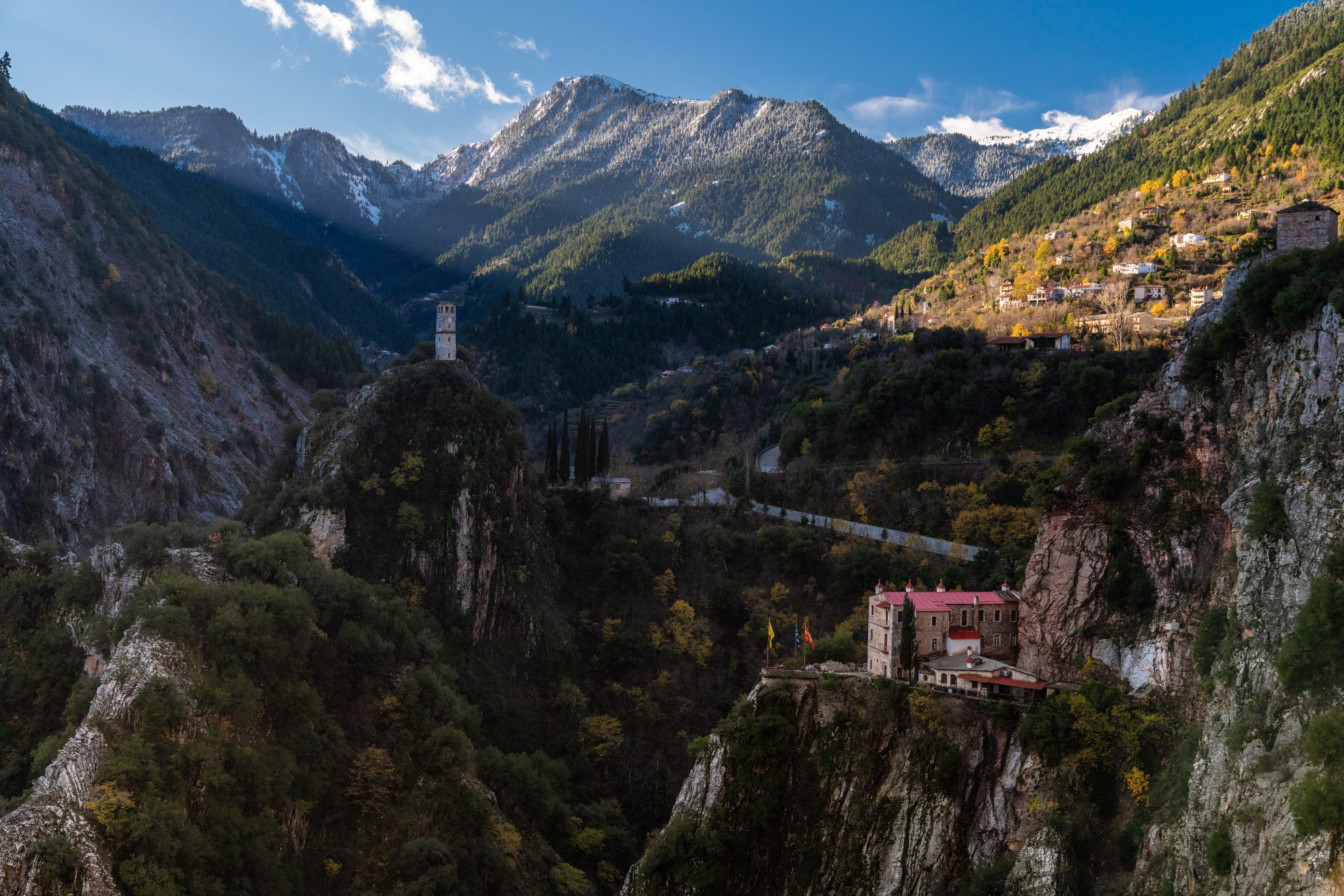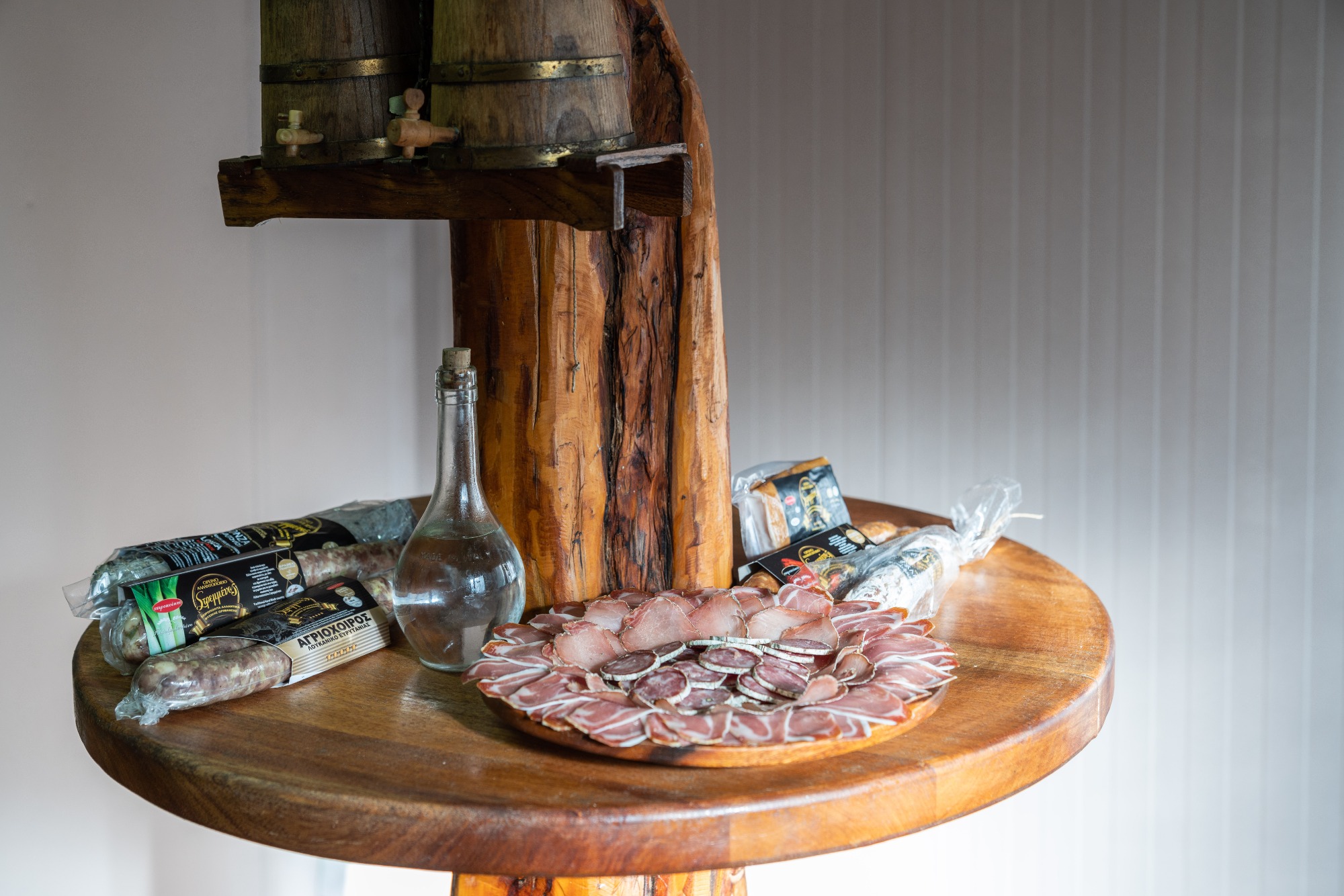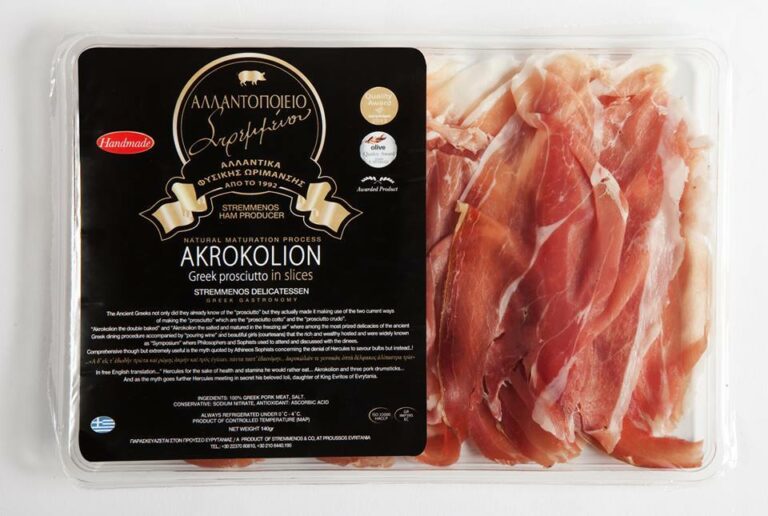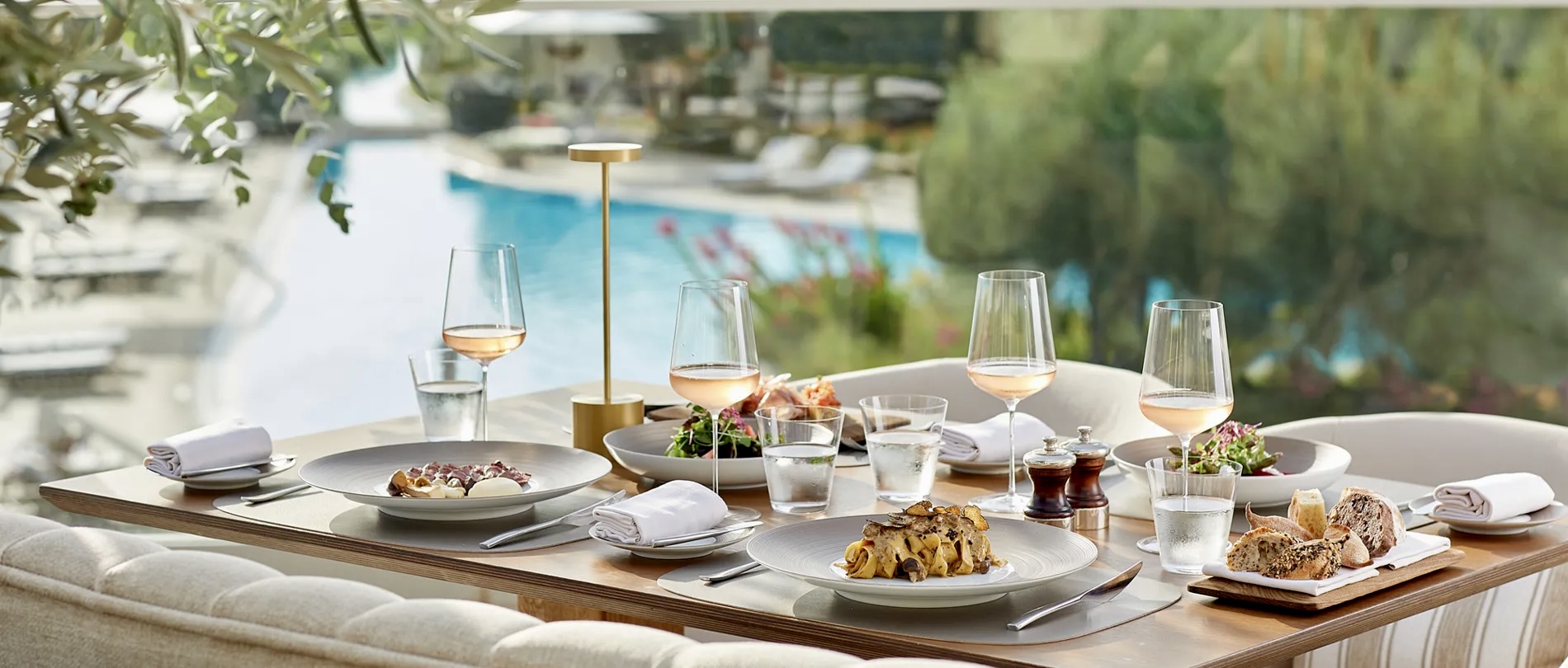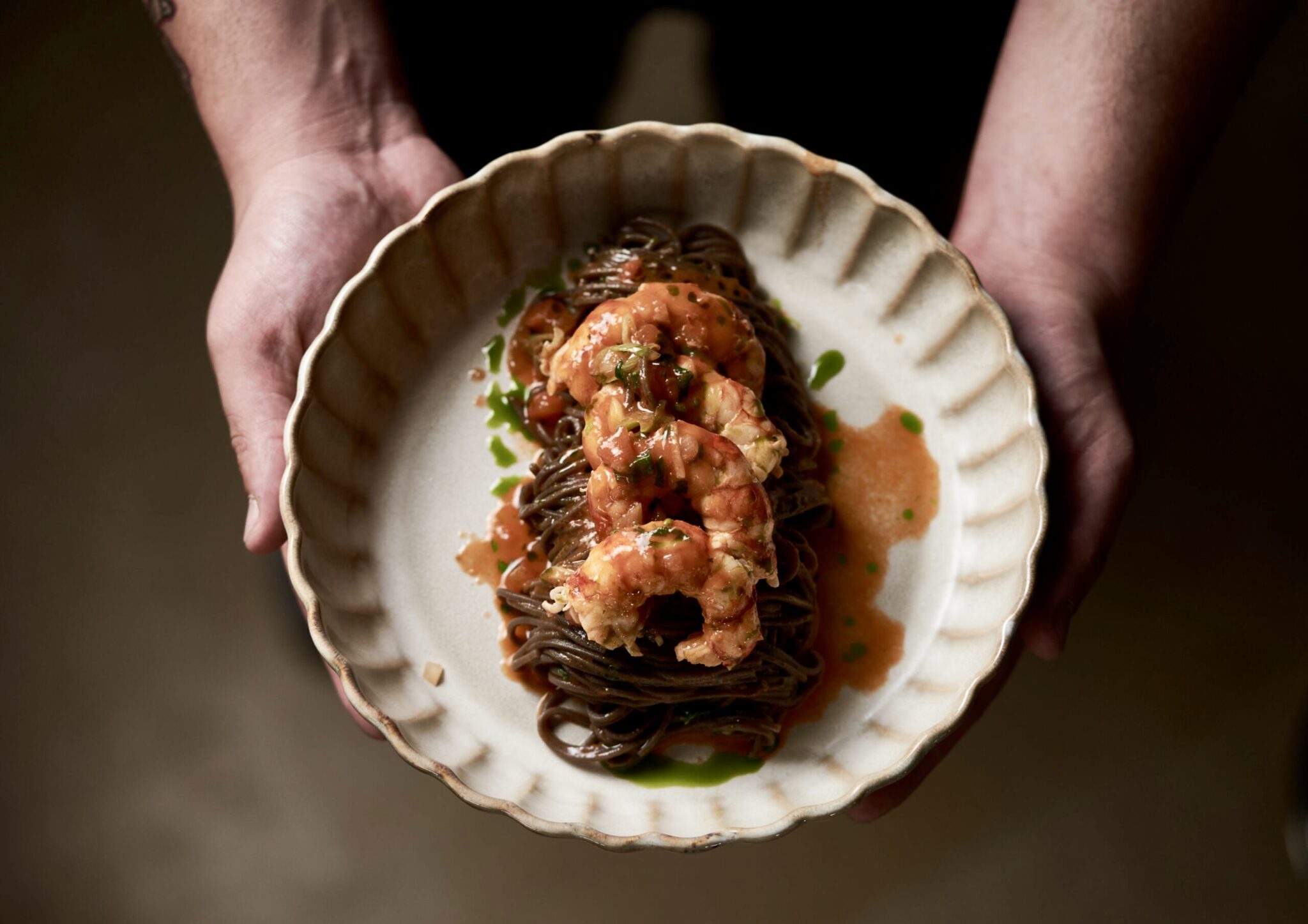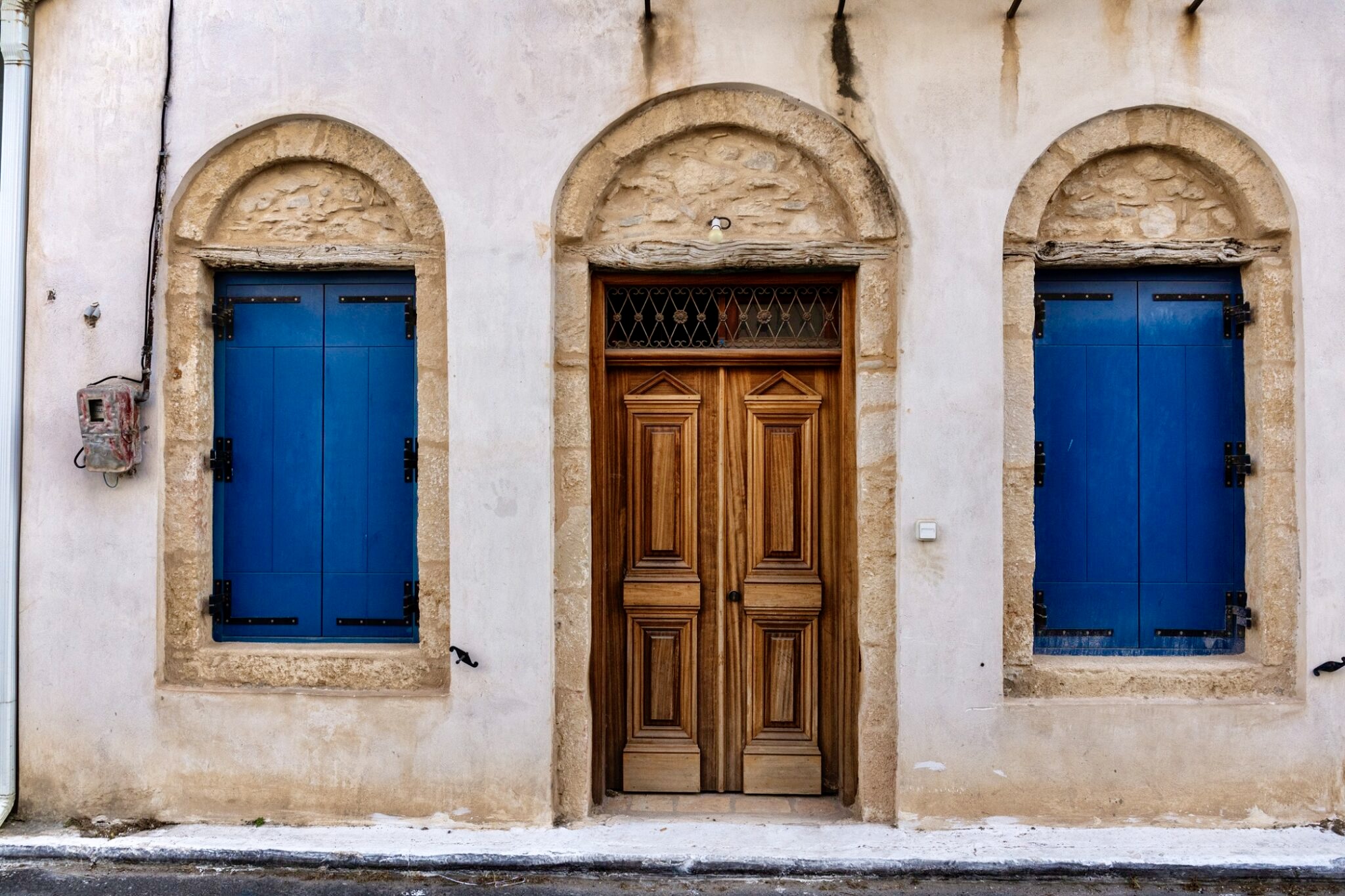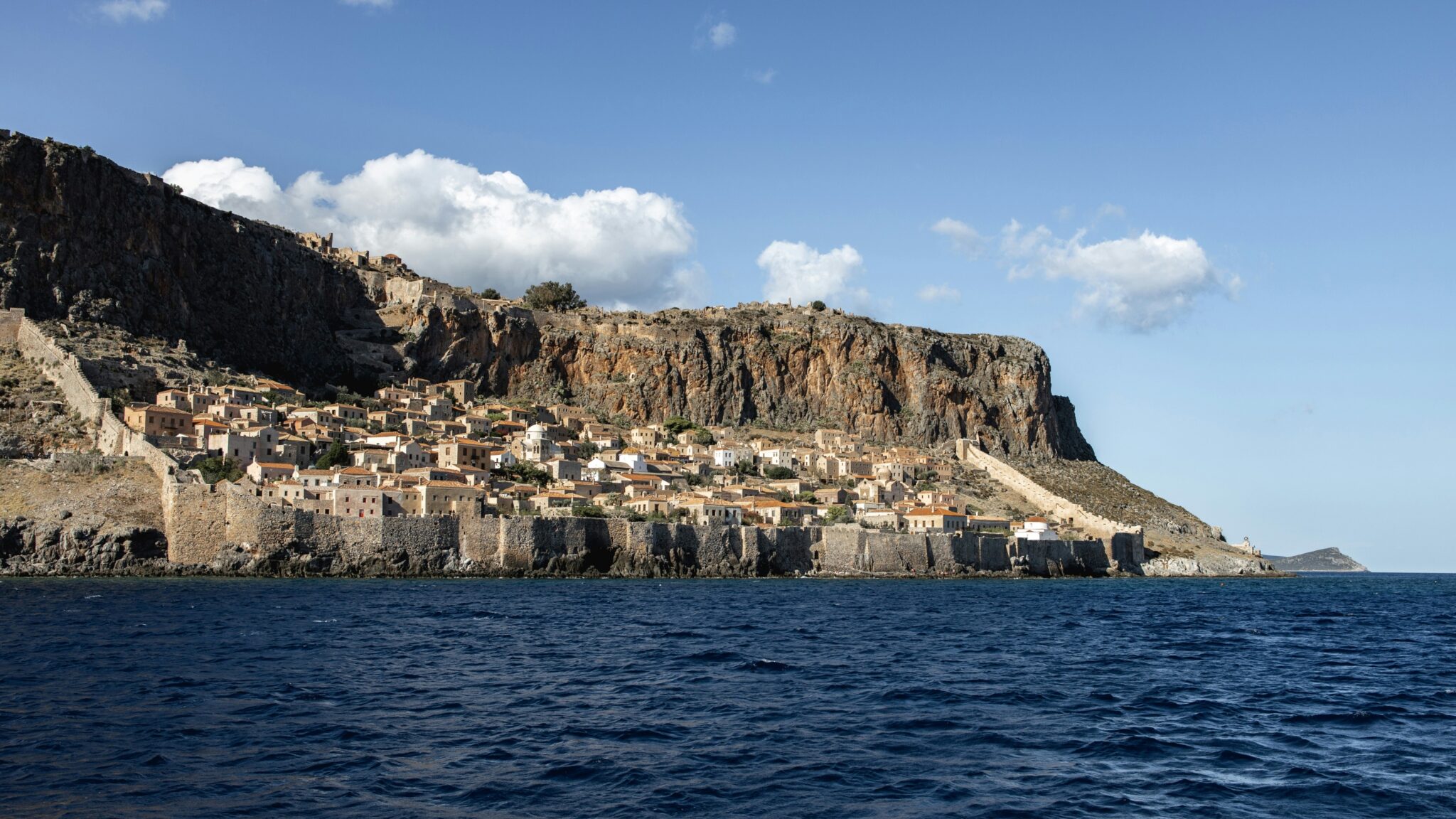The location of the Stremenos facilities is magical. Below the road, on the banks of river Prousiotis, in a creek with plane trees and ivy, thick shade and bubbling waters. An easy path leads to the Prousos monastery, among lush vegetation, across small bridges, while on the other side there are trails that lead to the famous Black Cave.
Entering the curing facilities with the red-tiled roof, you’ll find yourself in a small reception area. A display with the products on the one side, a small round stand fitted on a tree trunk on the other. This is where the visitors try the products, drinking local tsipouro (traditional pomace raki). If they like, they can go down to the kiosk, by the river, and taste the products there. Mr. Kostas Stavropoulos, one of the business’ main artisans comes out of a nearby door, and we get a glimpse of the production area, with the shiny benches and the few members of staff taking their time to do their work, without any rush.
How did you start working here, Mr. Stavropoulos?
“Christos Pastras and I are two of the old-timers here – we’ve been working here for 30 years, since the facilities first opened in 1992. When Mr. Christos Stremenos decided to open this facility, he sent Christos Pastras to Italy to train, and he then trained other people, including myself. That’s how we learned how to make prosciutto and the other cured meats. Then the recipes were modified to fit the Greek market and palate. After all these years the products are still made in the same traditional way that Mr. Christos wanted.”
Christos Stremenos’ vision
The name of the business’ founder keeps coming up in the conversation. Who was the man who envisioned a Greek prosciutto as a continuation of the ancient Greek “akrokolion”?
Christos Stremenos from Prousos was a multifarious person who inspired everyone who met him. A university professor, who taught for decades Industrial Chemistry at the University of Bologna. A cosmopolitan and intellectual, he served as an ambassador of Greece to Rome. He loved Greece and his homeland and aimed at promoting the long tradition of Evrytania and Greece in cured meats by creating a model production unit. He was knowledgeable and had foresight and designed and achieved the upgrade of the local cured meats on a delicatessen level (with international distinctions) and managed to keep people in Greece.
He died at the age of 86 and the business passed into the hands of Tassos Papadopoulos and, in 2018, in the hands of Tassos Evangelou and his partner Giannis Karakanas. Mr. Evangelou worked for 27 years as an executive at Diageo PLC, the largest premium drinks company globally, (Managing Director for Greece, Hub Director for many European countries, Global Sales Director) and Mr Karakanas was the Diageo Area Sales Manager for Greece.
“I was very much attracted to the Stremenos brand as well as to the land, and the history of the business. I should mention that I acquired the company first and then met Christos Stremenos. When I met him, I told him immediately that the company would always be his home. He would come here every day in the summer – he would spend the winters in Italy –, have a tsipouro with his friends and chat with them. I would go too. He was widely knowledgeable; he knew everything about the country and its history. I was charmed by his personality. We had long conversations about life, philosophical matters, about Greece,” Mr. Evangelou explains.
We ask Mr. Stavropoulos, what changes the new ownership brought.
“The only change was the building’s renovation and the upgrade and replacement of the machinery. Production remains the same, following to tradition.” “Following tradition” can be seen in the production process and in the six members of staff (depending on the time of year, seasonal staff is hired).
The products and their secrets
“First of all, we use the local traditional recipes. For example, in the sausage with leek that we’ve been making in Evrytania forever, we use oregano, pepper and leek. Nothing else.” Mr. Stavropoulos explains. All the cured meats have been adapted accordingly. The salami that is traditional but is not something made exclusively in Evrytania, it’s made in many more areas of Greece, like for example the famous Lefkada salami, and the lonza that is also found in the Cyclades and other parts of Greece, as well as in Cyprus, are made in such a way, following a recipe that makes them unique and recognisable as Stremenos products. As time passes and we’ve been standing still for quite a while we start to feel the cold. Apart from us, no one seems to notice. “We’re dressed appropriately, and we’ve grown accustomed to it with the years,” Mr Stavropoulos smiles. “We work with the windows open almost always, as the renewal of the air helps the maturation. In general, the microclimate and the low temperatures of the area add to the quality of the products.”
How is this great prosciutto, “akrokolion”, made?
“This a truly unique product. The idea obviously comes from the Italian product, another great product, but the cut used is the pork leg which was called “akrokolion” in antiquity and in fact, a similar product was made. So, we gave the same name to our product after we modified the recipe to suit the Greek palate and market.”
Which of the charcuterie products is the hardest to make?
“The most complicated to make is the prosciutto that takes a year, or even more, to mature. Lonza is the most expensive to make as it comes from the middle of the steak and needs about 40 days to mature. Both products are made using whole cuts of meat and are made one by one by hand. We take great care with the ingredients. Our ingredients, that is the pork, are mainly sourced from select Greek farms and the spices from Greek producers. The intestine for the sausage and the salami is natural.”
The Evrytanians buy from Evrytania
How do the locals view the unit and the products?
“The locals come to take the tour, they buy the products, and they enjoy themselves. For example, once a year, in the summer, the company offers the grounds for a ball for the locals and the people from Prousos who live elsewhere. Visitors from all over Evrytania come, bringing friends who are on holidays in the area, and these friends bring their friends and that’s how it goes. Many people come to visit, mostly Greek but also foreign. The French who are familiar with the delicatessen, the Italian whose prosciutto is similar to our “akrokolion”, the Spanish who have their jamón, that’s the majority of foreigners we receive.” Mr Stavropoulos explains.
You sound proud of your work.
“Everyone who works here is proud of their work. We attend seminars, we keep learning, we make products of the highest quality and very tasty, we preserve tradition, we make our land known all over Greece and abroad. Yes, we are proud of our work.”
The handmade Stremenos traditional naturally cured cold cut products:
“Akrokolion” (proscuitto), lonza, traditional salami, spicy salami (with smoked paprika from Aridea), the black pork salami, sausage with leek (local traditional product of Evrytania), sausage with smoked paprika from Aridea, smoked bacon (whole pancetta smoked with beech wood), black bacon, variety of cold cuts.
For serving suggestions and recipes have a look at the website.
Stremenos Company, Prousos, Evrytania, stremenos.com, 0030 223 7080 810
143 Mistra str, Glyfada, Attica, 0030 21064 40195, 2109645346



